At ICE Bioscience, we understand the complexities and challenges inherent in the field of oncology. Our In Vivo Pharmacology (IVP) services are at the forefront of innovative cancer research, providing researchers and pharmaceutical companies with the pivotal tools they need to navigate the intricate landscape of tumor drug discovery. Utilizing our unique suite of IVP services, we empower our clients to not only envision but also realize the next generation of oncological therapeutics.
From the initial stages of compound screening to the detailed analysis of drug efficacy and safety, our IVP services integrate seamlessly into the drug development pipeline. Our sophisticated CDX (Cell-Derived Xenograft) models, which include living image cell lines, drug-resistant variants, and gene-edited lines, are meticulously designed to reflect the human biological response to novel treatments. These models serve as critical platforms for testing and refining anti-tumor agents, ensuring that only the most promising candidates move forward in the drug discovery process.

In Vivo Imaging and Reporter Cell Lines
Harness the power of visualization with our living image cell lines. These advanced models are engineered for bioluminescence, enabling real-time tracking of tumor behavior and response to therapies in vivo. Ideal for dynamic studies and accelerated drug screening.
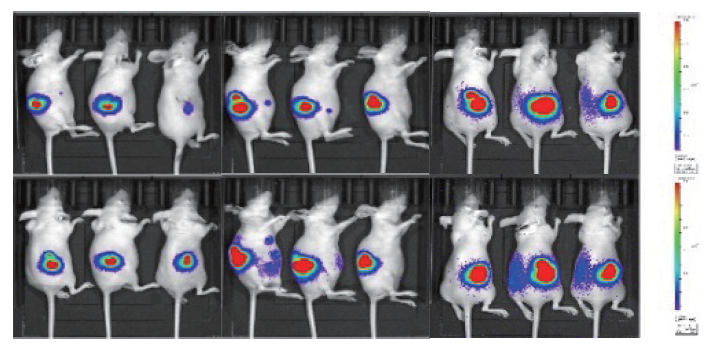
Drug-Resistant Cell Lines
Our drug-resistant cell lines simulate the clinical challenge of tumor resistance. They are crucial for testing the robustness of anti-cancer agents, allowing for the development of more effective oncology drugs that can overcome resistance mechanisms.
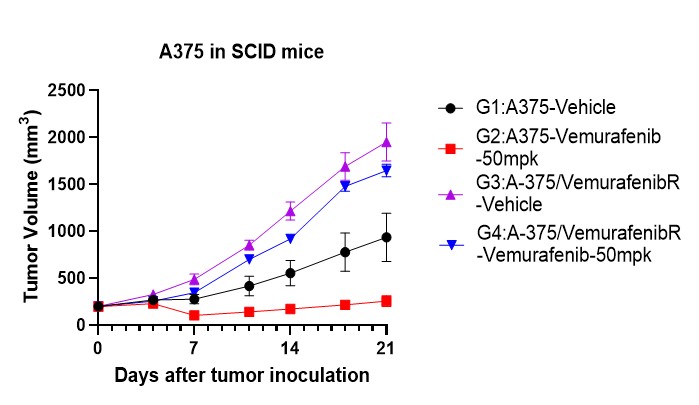
Gene-Edited Cell Lines
Explore targeted therapy with precision using our gene-edited cell lines. Created with CRISPR technology, these models are tailored to study specific genetic targets, offering insights into gene function and aiding the design of personalized cancer treatments.
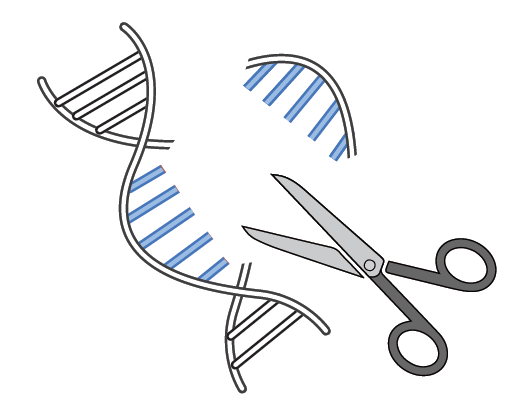
DDR Specific CDX Models
DDR-specific CDX models are tailored to study the intricacies of the DNA Damage Response (DDR), a critical cellular process that repairs DNA lesions and maintains genomic stability. Among our extensive array of DDR-specific models, the DLD-1 BRCA2 KO and the HCT116 BRCA2 KO is examples. These models involve knockouts of the BRCA2 gene in different cancer cell lines. The loss of BRCA2 function is known to make cells more sensitive to certain chemotherapies and PARP inhibitors, a class of drugs that target tumor cells with defective DDR pathways.
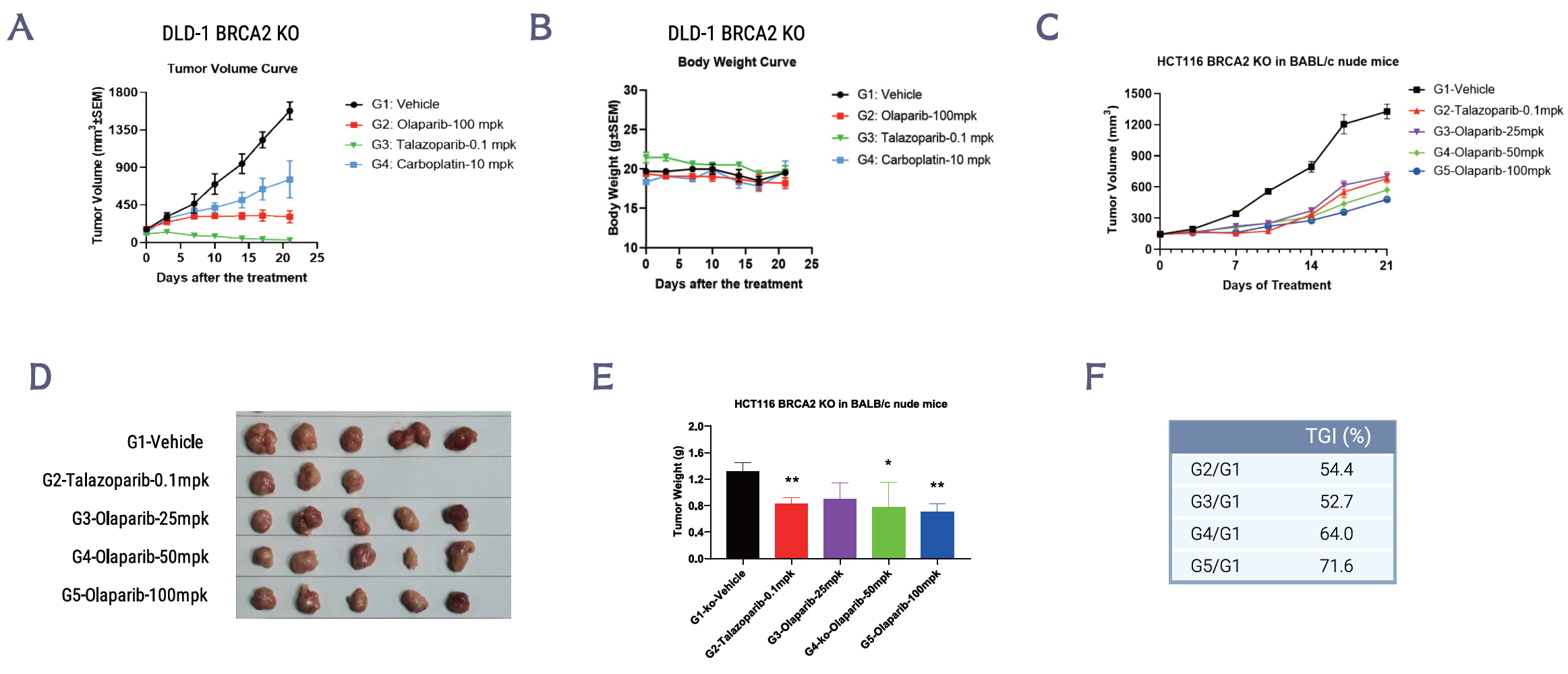
Comparative Analysis of DDR-Specific CDX Models. (A) Growth curve of DLD-1 BRCA2 knockout (KO) tumors in response to treatment, as indicated by the line graph. (B, C, D, E) Tumor growth curves, tumor images post-harvest, and bar graph of tumor volume quantification for HCT116 BRCA2 KO tumors treated with different agents, demonstrating varying degrees of tumor growth inhibition (TGI%). The table provides TGI percentages for each treatment group compared to the control (G1), underscoring the differential efficacy of treatments in DDR-deficient cancer models.
PK/PD Studies in CDX Models
PK/PD studies in CDX (Cell-Derived Xenograft) models enable researchers to understand the relationship between the dose of a drug and its antitumor effect in a biological system that closely mimics human cancer. By analyzing PK/PD data, researchers can optimize dosing regimens, predict therapeutic outcomes, and identify potential side effects before clinical trials, thereby increasing the likelihood of success in the development of new cancer therapies.
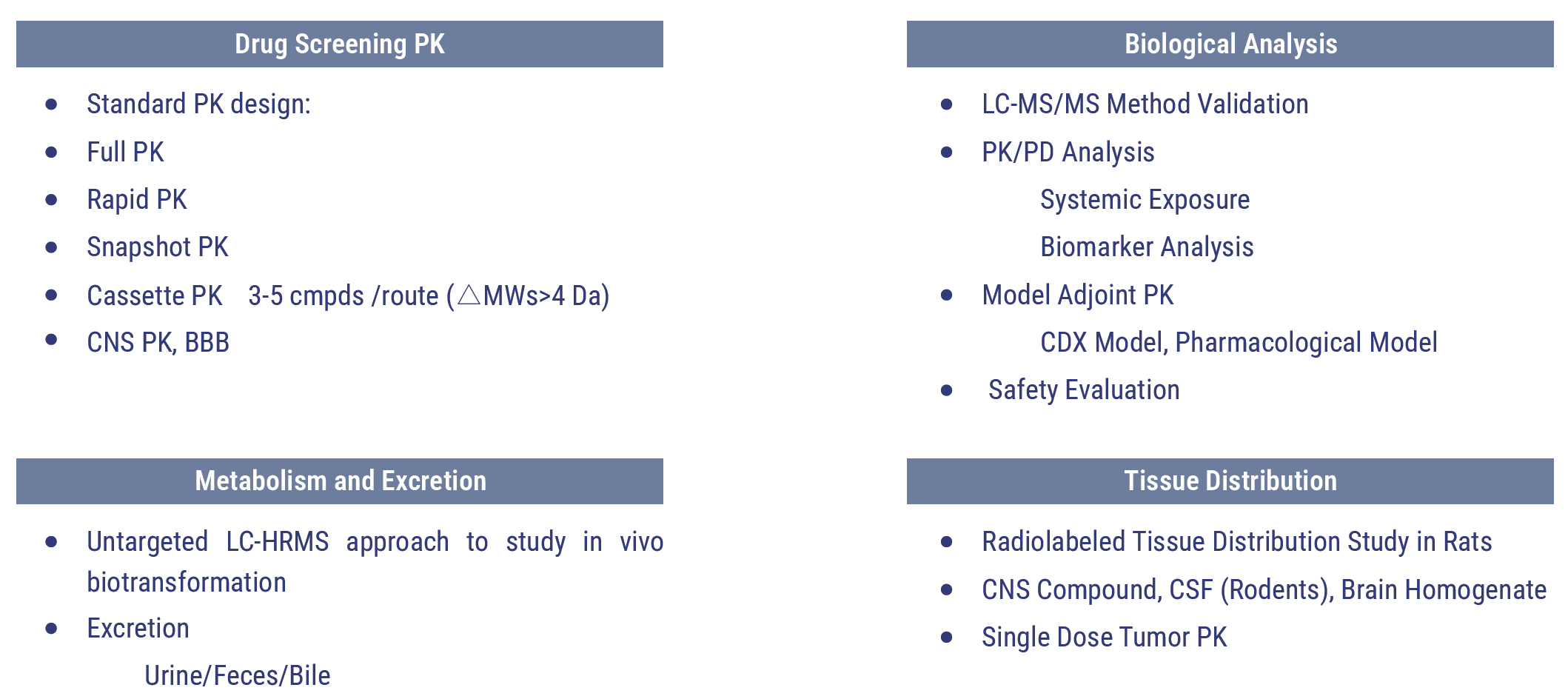
We value your inquiries and are here to provide you with tailored solutions for your drug discovery and development needs. Whether you have questions, require more information, or are interested in discussing potential collaborations, our team of experts is just a message away.
Feel free to reach out to us.
Address: Bldg 16, Yd 18, Kechuang 13th St, Etown, Tongzhou Dist, Beijing, 100176, China
Email: marketing@ice-biosci.com
Tel:+86-10-67809840

